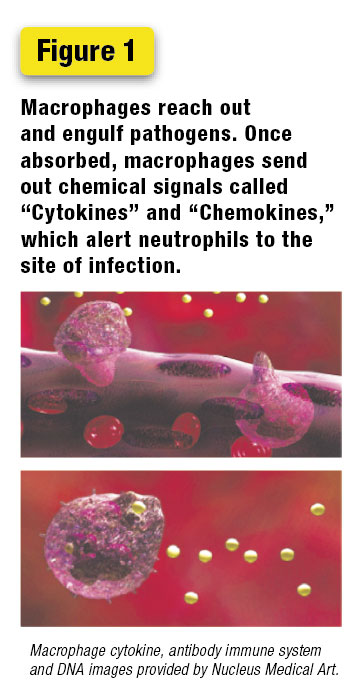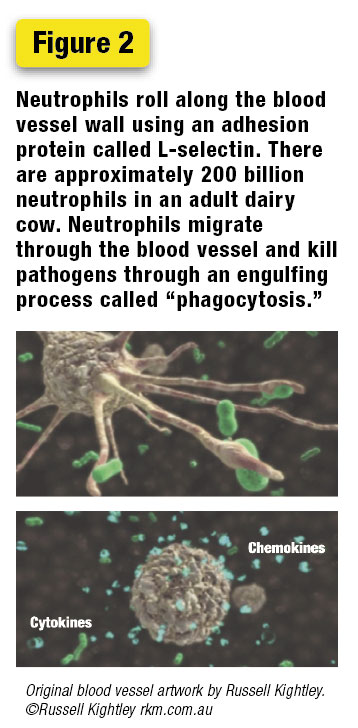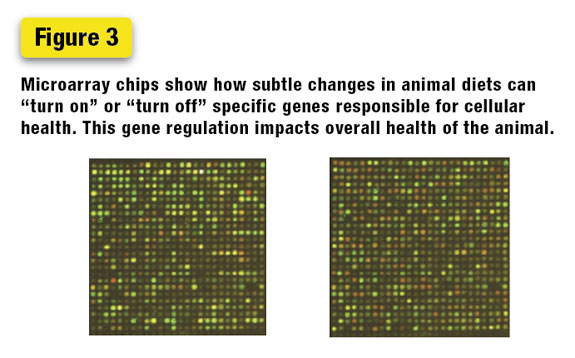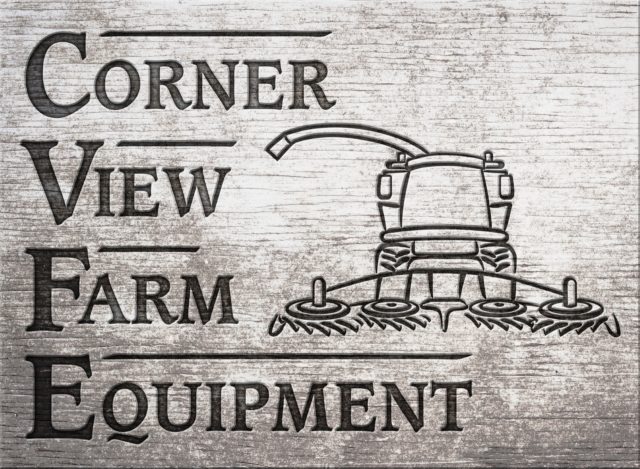For many decades, nutritional science has been focused on identifying nutrients, such as proteins, vitamins and minerals, and understanding their role in biological processes. Understanding how these nutrients reinforce the health of the cow, and thereby prevent diseases resulting from their deficiencies, has been a major objective in the dairy industry. Recently, a new science, referred to as nutrigenomics, has emerged as a result of significant developments in genetic research. Nutrigenomics is the study of molecular relationships between genes, their response to specific nutrients and how those responses can impact animal health and performance. Through the use of microarray technology, we can now study the impact of nutrients on specific genes and their genetic expression.
Just as in humans, animal health is directly related to diet and nutrition. Subtle changes in animal diets can “turn on” or “turn off” specific genes responsible for cellular health. This gene regulation in turn impacts the overall health of the animal. We can now determine which combination of nutrients specifically express those genes through nutrigenomics.
We have harnessed the key findings from this new science in our own proprietary nutrition platform, and as we’ve tested and proven it on farms, we’ve observed how gene expression can have a positive impact on herd health and productivity. Here’s how it works.
The bovine genome
In cows, as in humans, physiological systems are very complex and orchestrated into a symphony of biological functions necessary to sustain and propagate life. What keeps all of these many processes working in harmony is an intricate set of directions provided by the cow’s genetic make-up or genome.
The global Bovine Genome Sequencing Project, a consortium of 300 scientists from 25 countries, recently announced that it had mapped the bovine genome. This scientific breakthrough now provides us the opportunity to analyze and understand how specific genes are modulated, meaning what activates them and what deactivates them and how this on-off switching can affect specific physiological processes.
Certain nutrients have been discovered to be responsible for modulating specific aspects of animal physiology. While great strides have been made in understanding these processes, we are still at the beginning of a long journey. Research is progressing to further understand which specific nutrients and other naturally occurring compounds, modulate gene expression, how they do so and how responses vary within the different physiological processes.
Nutrigenomics will continue to revolutionize how we manage animal health and performance. We have directed our initial research towards identifying, understanding and applying specific nutrients to modulate the dairy cow’s innate immune system.

The immune system of ruminants
The immune system in the dairy cow consists of two distinct, but interactive systems. The innate immune system is comprised of natural barriers (skin, stomach acids, enzymes, etc.) and white blood cells (neutrophils and macrophages, see Figure 1 ), which continually monitor for sites of infection and pathogens. They are the “first responders.”
The adaptive or antibody system consists of other types of white blood cells whose function is to provide “long-term” protection against disease through the production of pathogen-specific antibodies.
Our first product developed from nutrigenomic research, a nutritional supplement with a proprietary blend of nutrients, modulates the innate immune system of a cow and provides nutrients required to help support a properly functioning immune system.
We expect great things to emerge in the future from the science of nutrigenomics. We project that products derived from this science will be used to influence most physiological systems in all animal species, including dairy cows, to improve performance metrics, reproduction, longevity and overall animal health.
For now, we will remain focused on ways to support immune function in animals. In addition to our ongoing work with the innate immune system, we are currently looking for ways to use nutrigenomics to reinforce the adaptive immune system, which could improve how an animal adapts and responds to vaccines or natural infections. We’re also actively involved in research that has the potential to improve the passive transfer of immunity from the dam to the calf.

Why protect the immune system?
A healthy immune system is paramount in protecting dairy cows against bacterial and viral pathogens while helping to reduce a wide range of diseases associated with these pathogens.
Dr. Don Sanders, a veterinarian and associate professor at Ohio State University, says preventing herd health problems before they occur just makes sense. Prevention is in the best interest of dairy producers and their cows, and preventing problems starts with good nutrition, reduced stress and a properly functioning dairy cow immune system.
“A dairy cow is like a highly engineered and finely tuned race car. If we don’t put the right fuel in her, and take care of her, she can blow up. Specialized nutrition is the fuel, and cow comfort and monitoring is the care. A cow that is stressed will not have a strong immune system to fight disease.
“As a veterinarian, I have many tools available to help keep cows healthy. However, the most effective and cost-efficient disease-fighting tool is the cow’s own immune system, which can be reinforced through nutrition.”
Benefits of a properly functioning immune system
The benefits of a healthy immune system are many and include reduced mastitis and metritis, lower somatic cell count, less death loss and culls, better reproductive efficiency and increased milk production.
Proper management and good nutrition can help reduce the occurrence of disease in the herd, resulting in lower treatment costs and more days spent in profitable milk production, which can increase total dairy income.

What’s in the future?
We have only just scratched the surface of what can be accomplished through the study and application of nutrigenomics.
Several companies are currently looking for ways to employ nutrigenomics in other areas, including the treatment and prevention of diseases like cancer and obesity in humans.
In the future, nutrigenomics will help nutritionists, veterinarians, and dairy producers keep dairy herds healthy, productive and profitable. PD



